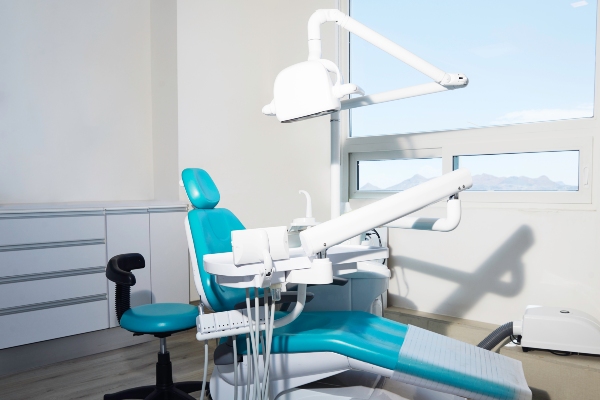Sleep Apnea: How a Dentist Can Help
If you’re one of the millions of people suffering from sleep apnea, you may be able to receive help in an unexpected place. There are many causes of sleep apnea, and a dentist can help. It may not be affecting family and friends either — some of your symptoms could be a sign of the sleep disorder.
What is sleep apnea and do I have it?
Researchers estimate almost 30 million adults have obstructive sleep apnea, which affects their day-to-day livelihood. Those who suffer from this sleep disorder have muscles that relax too much during their sleep, which causes soft tissue to collapse. This collapsing can occur in your airway, causing you to stop breathing for seconds to minutes.When you stop breathing your oxygen levels decline. The lack of oxygen startles your body awake, which disrupts your sleep cycle and makes you feel tired all day.You may have sleep apnea if you find yourself choking during sleep, snoring, morning headaches, memory loss, teeth grinding or daytime fatigue. Sleep apnea is more likely to occur in men. However, women — particularly throughout menopause — can suffer from the disorder.If you do not speak to a doctor or dentist about sleep apnea and you have the disorder,
you are at risk of stroke, diabetes, heart disease, high blood pressure, all of which can be fatal.
Treatment
Positive Airway Pressure Devices
PAP machines are a variety of breathing masks used by severe sleep apnea sufferers. The most common PAP machine is Continuous PAP (CPAP). You wear this mask when you sleep, and the machine supplies a continuous flow of oxygen to your body. Similarly, Bilevel PAP and Variable PAP are other options available depending on how much or little air you’re getting in your sleep.If you don’t see the success you’d like with a PAP machine, you shouldn’t feel down on yourself. Studies have shown 60% of sleep apnea sufferers reject PAP machines and move onto other oral appliances.
Oral Appliances
Another non-invasive alternative to surgery is
an oral appliance, which you will only wear while sleeping. These are generally more comfortable and easier to wear that CPAPs, as well as quieter and more convenient. The FDA has approved more than 100 different devices, so there is sure to be one perfect for you.Mandibular advancement devices (MADs) are double-arched. The appliance supports your jaw, pushing it forward to keep your airway open and prevent snoring. You may find some jaw pain and discomfort, as your jaw is not used to being supported. However, if you inform your dentist, they can adjust the MAD.Another option is Full Breath Solution Sleep Appliances (FBS). This is single-arched and fits over your teeth. Unlike MADs, FBSs don’t pull the tongue forward with the jaw. Instead, it utilizes a bar that keeps the tongue from moving too far up and back. The bar acts as a sort of tongue depressor and focuses on keeping the airway clear rather than forcing the jaw forward. You’ll also be able to open your mouth, whereas you cannot with a MAD.Both treatments are reliable. However, FBSs are a newer appliance in the dentistry world, introduced only in the last ten years. However, studies have shown that patients using an FBS had a 79% decrease in airway obstruction.There are over-the-counter oral appliance options, however, these are not FDA approved and can risk worsening your sleep apnea or damaging your mouth. Therefore, the best course of action is to have a prescribed, custom-made oral appliance for you.
What to expect at the dentist
When you schedule an appointment with the dentist and explain your symptoms, your dentist will explain the benefits of treatment. They will explain the options and likely explain the side effects of each option, as well as cost and insurance coverage. You may want to go home and consider your options before deciding on treatment.If you have opted for an oral appliance, the dentist will do a clinical evaluation including a brief check of your teeth, jaw, and tongue, and potentially take X-rays. They will take digital or physical impressions and send them to a lab as models of your teeth. The lab will then create the models into a night guard that perfectly fits your unique mouth shape. When the lab has completed the guard, you will have a formal fitting at the dentist’s office.After beginning your recommended treatment or therapy, you should notice you are more alert and healthy throughout the day. You may need to return to your dentist for adjustments, like braces, but these adjustments are for your comfort. A dentist may determine you should participate in a sleep study or a home sleep apnea test if your symptoms do not improve.

